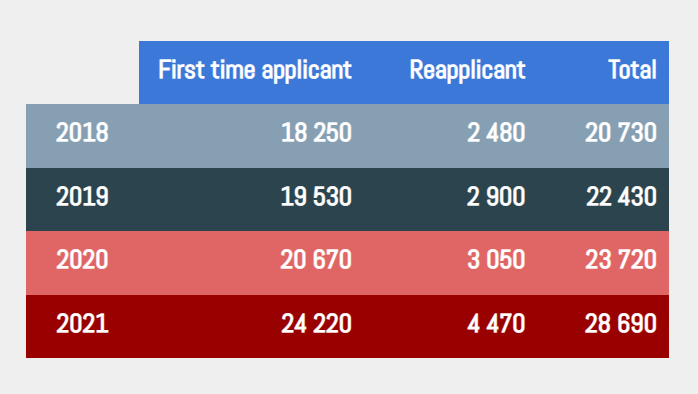How Long is Medical School in Europe

“The roots of education are bitter, but the fruit is sweet.”
Aristotle
Knowledge is a core part of future success as a medical professional. Yes, to be a doctor is a prestigious and well-paid career, but it comes with huge responsibilities.
As a physician, you will be that person who saves human lives and takes care of patients' health. Therefore quality education and dedication to that profession is a must.
Medical universities worldwide teach the same, but medicine programmes in Europe are 6 years, in the US and Canada 4 years, and UK - 5 years.
You are asking why and how. Read the article and learn everything you need to know about medical schools in Europe and why so many students decide to study there.
Table of Contents
- 1 How long does it take to get a medical degree in Europe?
- 2 How long does it take to become a doctor in other countries?
- 3 Why do so many UK students choose to pursue their dream in Europe?
- 4 Why is medical school in Europe 6 years?
- 5 Undergraduate entry medicine in Europe
- 6 Graduate entry medicine in Europe
- 7 What medical education in Europe is like
- 8 What’s after graduation?
How long does it take to get a medical degree in Europe?
Some European universities offer a 4-year graduate entry medicine for health care professionals. But in general, it takes 6 years to get an MD. That may sound too long for future students outside Europe, but let us explain.
You can study medicine abroad after completing your secondary education. Yes, that’s right. Unlike medicine entry requirements in the UK and Canada, in Europe, you don’t have to be a Bachelor degree holder as an applicant. You need just a high school diploma.
What’s more, the 6th year of your education is an internship. After graduation, you can immediately apply for a medical licence at the Medical Council in your home country! If you choose to study medicine in Europe, your degree will be recognised worldwide.
Example:
Suppose you got your MD degree from a European medical university and want to start practice in the United Kingdom. All you have to do is take the PLAB/UKMLA exam and apply for full GMC registration.
How long does it take to become a doctor in other countries?
In the US, medical students graduate after successful completion of a 4-year medicine course. However, American schools require you to have an undergraduate degree in science (Biology, Chemistry, etc.) to be eligible to apply for medicine. The duration of such programmes is 3 or 4 years. Now, let’s calculate. To get an MD in the US, you will have to study for 7 or 8 years - pre-med undergraduate degree (3 to 4 years) plus medicine course (4 years).
In Canada, it is the same. One of the admission requirements is a minimum 3-year Bachelor’s degree, often in the biological sciences.
In the UK, the duration of medicine programmes is 5 years. However, graduates must complete 1 year of the Foundation Programme (F1) before applying for full GMC registration.
Why do so many UK students choose to pursue their dream in Europe?
Thousands of students apply to study medicine or dentistry in Europe due to the high tuition fees and fierce competition in British universities. And what's more, MSC (Medical Schools Council) published a document from which it is clear that the number of total applicants for medicine in 2021 has increased by nearly 5 000 compared to 2020. There is also more than a 3% increase in the number of reapplicants.


What does that mean? It will get harder and harder for future medical students to get a place at UK medical schools.
But does it really matter where you study? Regardless of which medical university you are accepted to, you will learn the same - everything about the human body. Yes, there is a slight difference between the curriculums and programmes, but in the end, European degrees are recognised globally.
Why is medical school in Europe 6 years?
There are more than 100 European medical universities that teach medicine in English. The courses are especially suitable for international students since they combine theoretical knowledge and practical experience.
Medical studies abroad are divided into parts: academic (years 1 - 3) and practical/clinical rotations (years 4 - 6). We all know that knowledge is not limited to what you learn inside the classroom. It also includes all of the experiences that come with your practical training.


Undergraduate entry medicine in Europe
The undergraduate medicine course in Europe is 6 years. Simply said, the most common entry requirements for studying medicine in Europe are:
- High school diploma
- Good grades in Chemistry, Biology, and Mathematics or Physics
- English proficiency certificate for non-native speakers
- Simple entry exam in Biology and Chemistry in English
- Passport
However, you can study medicine without an entrance exam or apply with BTEC.
Graduate entry medicine in Europe
Many institutions offer accelerated MD degrees in Europe. The duration of the course is based on your previous degree and the subjects you have studied. The admission requirements are:
- University transcript
- Passport
- English proficiency
Admissions committees will evaluate your subject, study hours, and credits. These will then be equivalent to exclude you from the topics included in your Bachelor's degree. As a result, the institution will enable you to abbreviate your programme by lowering the number of topics required for graduation. This means that you will be able to graduate in 3 or 4 years!
What medical education in Europe is like
We can generally divide a medical programme into 2 parts - theoretical and practical.
What is studied during years 1-3?
The first 3 years of the medical course are theoretical. This means that you will study the basis of medicine such as Human Biology, Chemistry, Human Anatomy and Histology, Biochemistry, and Physiology.
What is studied during years 4 and 5?
During these years the education is more practical. Often years 4 and 5 are referred to as clinical years or clinical rotations. As a result of clinical rotations, students may apply what they've learned in the classroom to real-world medical situations.
Year 6 in Europe
As we mentioned earlier, the final year of medical programmes in Europe is an internship. All students have the opportunity to practice medicine in real-life situations. You will be required to have a minimum of clinical classes in Paediatrics, Internal Medicine, Surgery, etc.
You can check out the Medical University of Varna medicine curriculum for example.
What’s after graduation?
Congratulations! You have successfully completed your medical education, but you still have some work left to do.
PLAB
Until 2024, every graduate outside the UK had to take The Professional and Linguistic Assessments Board test (PLAB test). The PLAB test ensured that you understand and can perform the same tasks as a medical practitioner beginning their second year of Foundation Programme training in the UK.
You can read our article “What is the PLAB?” for more information.
UKMLA
The PLAB soon will be in the past. GMC announced that starting from 2024, every medical graduate (regardless of whether you graduate from the UK or abroad) will have to sit the UK Medical Licensing Assessment (UKMLA). So, if you are worried that you will have to sit an exam in the UK, don’t, because shortly everyone will do.
Physicians from the United Kingdom and other countries will be required to demonstrate an understanding of key principles in patient care.
Learning is a never-ending process! If you desire to become a doctor, nothing can stop you.
Studying medicine abroad might be the best decision you will ever make. So, go ahead, choose the best medical school for you, and let your dreams come true.
Leave a Reply

About Medlink Students
Leading international recruitment company for medical students in Europe. British Council Certified Agents. 10+ years of experience and more than 10,000 students advised.








